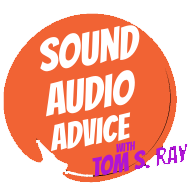can you play electric violin with headphones
can you use microphone jack for headphones
June 1, 2023how to make headphones sound better windows 10
June 1, 2023.jpg)
Can You Play Electric Violin with Headphones?
To play electric violin with headphones, if you want to know how, introduce yourself to the instrument and learn the basics. Then, find out why you might want to use headphones with electric violin by exploring the different benefits.
Introduction to Electric Violin
The electric violin is an instrument that has gained popularity among music enthusiasts in recent years. Unlike the acoustic violin, it generates sound electronically, making it an ideal choice for playing in a variety of genres. The good news is that you can play the electric violin with headphones to keep your practice sessions quiet or to monitor your sound when performing.
Using headphones while playing electric violin allows you to hear every note played without disturbing others around you. Moreover, some models come with headphone jacks that are built-in, which enables you to attach your headphones directly to your instrument. In this way, you can adjust the volume level as per your preference and eliminate external noise distractions.
Playing electric violin with headphones is a unique experience as it lets you focus and concentrate better on your music. Furthermore, using noise-cancelling headphones helps block out external noises completely, providing a more immersive practice environment.
According to research conducted by Violinist.com, “more and more performers are switching from acoustic violins to electronic ones,” due to their versatility and ease of use.
Because your neighbors don’t appreciate hearing you practice your death metal covers on the electric violin at 2am.
Why Use Headphones with Electric Violin?
Playing electric violin with headphones provides numerous benefits to musicians. It allows them to practice without disturbing others or being disturbed by external noise, ensuring they can concentrate on their music and train for long periods. Furthermore, it enables musicians to break free from physical limitations and not have to stand near an amplifier, dynamic volume control available through headphones allowing for better tone control.
In addition, electric violins output a loud sound that can cause discomfort or damage to hearing if exposed regularly over time. By using headphones, musicians can protect their ears and play for extended periods without any harm. This technique also makes it possible to capture the sound entirely digitally and adjust it as required during editing, giving musicians endless possibilities in producing quality music.
Interestingly, according to a study conducted by Science Direct, music played through headphones was found to be significantly less harmful than when projected through speakers at high volumes.
Silent violin, deadly tunes: the joys of playing electric violin with headphones.
Playing Electric Violin with Headphones
To play your electric violin with headphones, you need to select the right electric violin that’s compatible with headphones. In addition, you need tips to ensure the optimal playing experience. That’s where the sub-sections – List of Electric Violins Compatible with Headphones and Tips for Playing Electric Violin with Headphones – come in handy.
List of Electric Violins Compatible with Headphones
If you’re considering playing the electric violin with headphones, there are several models available that cater to this need. Here are some options worth considering:
- Yamaha SV-130
- NS Electric NXT4a Violin
- ZETA Strados Electric Violin
- Wood Violins Stingray SVX5
- Bridge Aquila Series Electric Violin
These models offer superb sound quality and comfort via compatible headphones. With features like built-in headphone jacks and Bluetooth connectivity, they provide an immersive musical experience while minimizing external noise interference.
For those who prefer a bow-like feel when playing, the Yamaha SV-130 is an excellent option. Meanwhile, the Bridge Aquila series provides comfort for extended playtime as it possesses a carved lightweight body design.
It is essential to note that while these violins cater to personal preference, choosing one should involve careful considerations such as picking the right model based on your level of skill or music genre for performance.
As per an article published by ‘The Straits Times’, wearing noise-cancelling headphones might help in reducing hearing loss caused by loud music.
Put your ears to good use and rock out without disturbing your neighbors with these tips for playing electric violin with headphones.
Tips for Playing Electric Violin with Headphones
When using headphones with your electric violin, certain tips can improve the quality of sound.
- Choose a high-quality headphone with flat frequency response.
- Adjust the volume levels to prevent hearing damage.
Next, practice playing violin with headphones before performing live. Lastly, adjust equalization to balance frequencies while playing with headphones.
Moreover, using noise-cancelling headphones can boost the overall performance by reducing ambient noise. This allows performers to focus on their music and enhance their performance quality.
To add more value to your experience, consider investing in wireless or Bluetooth-enabled headphones for greater flexibility while practicing or recording.
Make sure you don’t miss out on quality sound experience while playing electric violin when using headphones. Follow the above tips and choose suitable high-quality headphones to elevate your performance today!
Finding the right headphones for playing electric violin is like finding the right partner – they should fit comfortably, produce quality sound, and cancel out any unwanted noise.
Choosing Headphones for Playing Electric Violin
To choose the perfect headphones for playing electric violin with ease, you need to know about the types of headphones and important features to consider. The first sub-section will introduce you to all the different types of headphones that are suitable for electric violin, and the second sub-section will focus on the features you should look for in headphones before buying them.
Types of Headphones
Headphones play a vital role in providing an immersive experience to electric violin players, allowing them to hear their sound perfectly. Different types of headphones can cater to varied needs, such as noise-cancellation, amplification and wireless connectivity.
- “Closed Back” Headphones mask external noise.
- “Open Back” Headphones provide a natural sound stage.
- “In-Ear” Headphones are discreet and travel friendly.
- Wireless Bluetooth Headphones provide freedom of movement.
- Audiophile “Over-ear” Headphones produce high-quality sound.
While the above points describe diverse headphones available in the market, it’s essential to note that every choice will have unique benefits and drawbacks based on personal preference.
Some audiophiles argue that studio-grade headphones designed for mixing music can reproduce clear and accurate reflection of sound frequencies produced by the electric violin. These headphones have neutral mix quality without any tuning or bass-boost for the producer to mix better.
In a study done by Digital Trends, industry professionals encouraged users always to try before they buy as different brands and types of headphones could ultimately feel quite different even if they’re technically similar enough.
It’s worth noting that some high-end headphones come with removable cables (single or dual) enabling better user customization or easy replacements in case of user cable damage.
(Source: Digital Trends)
Blast those strings without disturbing the peace – the right headphones make all the difference.
Features to Consider When Choosing Headphones for Electric Violin
When purchasing headphones for playing electric violin, certain factors must be considered. It is essential to select headphones that are specifically suited to the intricacies of playing the electric violin.
There are four main features to consider when choosing headphones for electric violin:
- Sound Quality: The headphones should provide clear, accurate sound quality with minimal distortion.
- Comfort and Fit: Comfortable headphones that fit correctly can enhance your listening experience and allow you to wear them for longer periods without discomfort.
- Noise Cancellation: Headphones should have an effective noise-cancelling feature to block out background noises while playing the electric violin.
- Durability: Look for headphones that can withstand frequent use and potentially falling off during active performances.
In addition, it is crucial to ensure that the chosen headset is compatible with your electric violin, ensuring seamless integration.
Pro Tip: When purchasing a headset for electric violin, it’s best to test out several options in person to find what works best with your particular instrument.
Remember, the right headphones can make all the difference between sounding like a professional violinist or someone trying to strangle a cat.
Conclusion
Electric Violin – Compatibility with Headphones
To play an electric violin with headphones, you just need to connect the instrument to an amplifier, and then plug the headphones into the amplifier’s headphone jack. This allows you to listen to your playing privately without bothering others.
In addition, using headphones eliminates any external noise that could interrupt your practice session. Just make sure that the volume level of the amplifier is not too high for your ears as it can lead to damage or hearing loss.
A related aspect of this topic is using effects pedals with an electric violin. By connecting a pedal in between the instrument and the amplifier, you can add various sound effects such as reverb, distortion, delay, and chorus. This can enhance your performance and create more diverse musical expressions.
Pro Tip: Always use a model of amplifier that has a headphone output jack for practicing with headphones comfortably.
Frequently Asked Questions
1. Can you play electric violin with headphones?
Yes, you can use headphones to play an electric violin. This is one of the advantages of electric violins as they allow you to practice silently without disturbing anyone else.
2. Do all electric violins come with a headphone jack?
No, not all electric violins come with a headphone jack. However, most professionals prefer to use electric violins with a headphone jack for practice or when they are performing in small venues.
3. Can I use any type of headphones with an electric violin?
You can use any type of headphones with an electric violin as long as they are compatible with the headphone jack of the electric violin. Some violins have a 3.5mm jack while others have a 6.35mm jack, so make sure you use the right type of headphones.
4. Is playing an electric violin with headphones more difficult than playing without headphones?
No, playing an electric violin with headphones is not more difficult than playing without headphones. In fact, some musicians find it easier to play with headphones on as it allows them to focus better on their playing.
5. Can I use wireless headphones with an electric violin?
Yes, you can use wireless headphones with an electric violin as long as they are compatible with the headphone jack or adapter that you are using on your violin. However, make sure that the wireless headphones have good connectivity to avoid any disruptions while playing.
6. Are there any advantages of playing an electric violin with headphones?
Yes, there are several advantages of playing an electric violin with headphones. First, it allows you to practice silently without disturbing anyone else. Second, it helps you to concentrate better on your playing as you can hear yourself more clearly. Lastly, it helps you to improve your playing by providing a more accurate and detailed sound of your playing.
I’m Tom S. Ray and I’m head mastering engineer at Audio Unity Group. I also hold a bachelor with honours degree in music from Kingston University in London, I lecture mastering to students in Edinburgh College and to my online students via my Mastering Mastery audio mastering online course.


